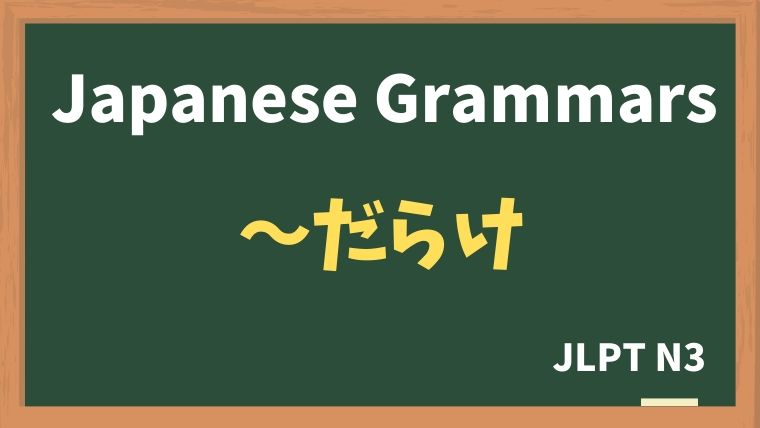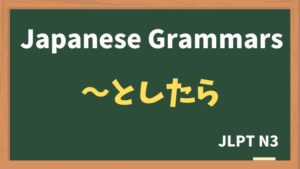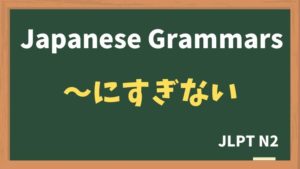
Explanation:〜だらけ
fa-check-circleMeaning
"〜がたくさんある / よくないものが、たくさんついている"
This grammar pattern Indicates that something has a lot of something similar, which is undesirable.
fa-check-circleForm
N + だらけ
fa-check-circlePoitns
- Indicates Abundance: "〜だらけ" emphasizes that something is present in large quantities or covers a significant portion of an area or object.
- Negative Connotation: It is typically used in contexts where the abundance is undesirable, such as being covered in dirt, full of mistakes, or littered with something unpleasant.
- Attaches to Nouns: This expression is attached to nouns to describe the state of being "full of" or "covered with" that noun.
fa-check-circleJLPT Level
N3
Sample sentenes
トムさんのレポートは漢字が間違いだらけだった。
Tom's report was full of kanji mistakes.
部屋を全然、掃除していないので、ほこりだらけだ。
Since I haven't cleaned the room at all, it's full of dust.
父の髪は白髪だらけだ。
My father's hair is full of white.
私は貧乏で、借金だらけだ。
I'm poor and full of debt.
彼は怪我をして、手が血だらけだ。
He got injured, and his hands are covered in blood.
10年以上使っているギターなので、ボディは傷だらけだ。
The guitar, which has been used for over 10 years, is covered in scratches all over the body.
Vocabulary
| Japanese |
English | |
| 埃 | ほこり | dust |
| 白髪 | しらが | grey hair |
| 貧乏 | びんぼう | poor |
| 借金 | しゃっきん | debt |
| 血 | ち | blood |






